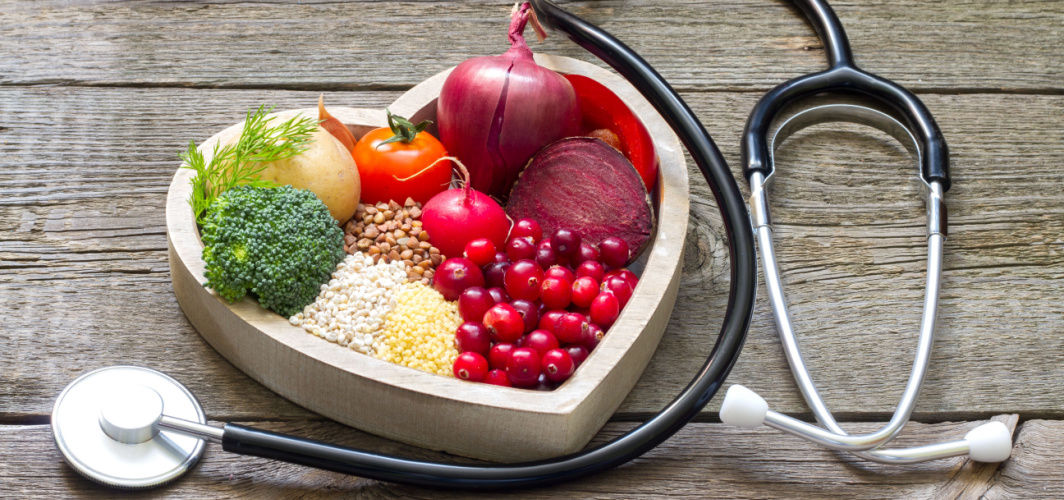Heart Conditions
Heart Healthy Diet: 5 Foods To Eat & Avoid If You Have A Heart Condition
4 min read
By Apollo 24|7, Published on - 30 May 2023, Updated on - 16 June 2023
Share this article
0
13 likes

Our diet plays a major role in determining the health of our vital organs including our heart. While some foods may help your heart function better, others may lead to disease. We understand that transitioning to a healthier diet can be challenging, especially when dealing with a heart ailment. That's why we've compiled a list of foods that will assist you in preparing meals that would help keep your heart healthy.
Foods To Eat for a Healthy Heart
1. Leafy green
Leafy green vegetables such as spinach, kale, and collard greens are renowned for their abundant essential vitamins, minerals, and antioxidants. These nutrient-packed vegetables are particularly rich in vitamin K, which protects your arteries and promotes healthy blood clotting.
Furthermore, leafy greens are a fantastic source of dietary nitrates, which have been proven to lower blood pressure, reduce arterial stiffness, and enhance the function of cells that line the blood vessels. Consuming these nutrient-dense vegetables regularly can aid in maintaining optimal heart health and overall well-being.
2. Whole Grains
Whole grains are an excellent source of dietary fibre as they reduce cholesterol levels and lower the risk of heart disease. Opting for whole-grain flour, bread, pasta, and cereal instead of refined grains is highly recommended, as they contain germ, endosperm, and bran, which are nutrient-rich components beneficial for heart health. Whole grains also improve digestion, increase satiety, and reduce inflammation.
3. Fruits and Vegetables
In addition to consuming leafy green vegetables, heart health patients should strive to include a daily serving of fresh fruit and a side dish of salad or tossed vegetables. This daily intake will ensure that your body receives an ample supply of essential micro-nutrients such as vitamins and minerals while also providing protection against heart damage caused by free radicals.
4. Protein-rich Foods
Heart-healthy protein sources include lean meat, poultry, fish, low-fat dairy products, and eggs. When selecting these foods, it's important to choose leaner cuts and lower-fat options, such as skinless chicken breasts and skim milk. You can also consume fish as their omega-3 fatty acids can help lower triglyceride levels in the blood. For those who prefer plant-based protein sources, legumes like beans, peas, and lentils are excellent choices that are both low in fat and cholesterol-free, making them a healthy substitute for meat.
5. Healthy Fats
Avocados, nuts, and seeds contain monounsaturated and polyunsaturated fats that lower cholesterol levels and reduce the risk of heart disease. You can also add olive, canola, and peanut oil as healthy fat options to your diet.
6. Low-Fat Dairy
Low-fat dairy products are excellent sources of calcium and protein. Individuals should aim for two to three servings of low-fat dairy per day. You can add milk, yoghurt, and cheese to your diet.
Foods to Avoid in a Cardiac Diet
1. Processed Meats
Avoid processed and fried meats as they are high in saturated and trans fats, sodium, and preservatives, which increase the risk of heart disease. Instead, individuals should opt for lean protein sources such as poultry, fish or plant-based options like beans and lentils.
2. Salt
If you consume excess salt, you are at risk of high blood pressure and heart disease. Avoid foods made with extra added salt, such as potato chips, canned food, instant meals, and fast foods. Cut down your sodium intake to 2,300 milligrams per day or less than 1,500 milligrams per day if you already suffer from high blood pressure or heart disease. Instead of salt, individuals can add flavour to their food using herbs, spices, and lemon juice.
3. Full-Fat Dairy
Whole milk, cheese, and butter contain high levels of saturated fats that can raise cholesterol levels and contribute to heart disease. Individuals should choose low-fat or fat-free dairy products or plant-based alternatives like almond or soy milk.
4. Fried Foods
Fried foods are high in unhealthy fats and calories, which can lead to weight gain and increase the risk of heart disease. Individuals should choose baked or grilled options for their meals. Heart patients must stay away from french fries, fried chicken, and doughnuts.
5. High-Sugar Beverages
Sugary drinks like soda, energy drinks, and market-based fruit juice can contribute to weight gain and increase the risk of heart disease. Individuals should choose water, unsweetened tea, fresh juice, or low-sugar options like sparkling water or 100% fruit juice in moderation.
Making small changes to your diet can improve your heart health and prevent heart conditions. Before making any major changes in your diet,
Consult Apollo’s Expert Cardiologist
Medically reviewed by Dr Sonia Bhatt
Heart Conditions
Leave Comment
Recommended for you

Heart Conditions
First Aid For Heart Attack
A heart attack can be a scary situation. Know the signs, symptoms, causes, risk factors, and rehabilitation measures for a heart attack. Learn important first-aid techniques to manage a heart attack.

Heart Conditions
9 Subtle Signs of Heart Problems
Not all signs of heart problems are as evident as chest pain, and there are other subtle symptoms that can be early warning signs.

Heart Conditions
Angiogram: Everything You Need to Know
An angiogram is performed to check for anomalies in the blood vessels that may be causing issues in the brain, heart, abdomen, kidneys, and even legs.
Subscribe
Sign up for our free Health Library Daily Newsletter
Get doctor-approved health tips, news, and more.
Visual Stories

World Heart Day 2021: Take charge of your health
Tap to continue exploring
Recommended for you

Heart Conditions
First Aid For Heart Attack
A heart attack can be a scary situation. Know the signs, symptoms, causes, risk factors, and rehabilitation measures for a heart attack. Learn important first-aid techniques to manage a heart attack.

Heart Conditions
9 Subtle Signs of Heart Problems
Not all signs of heart problems are as evident as chest pain, and there are other subtle symptoms that can be early warning signs.

Heart Conditions
Angiogram: Everything You Need to Know
An angiogram is performed to check for anomalies in the blood vessels that may be causing issues in the brain, heart, abdomen, kidneys, and even legs.
